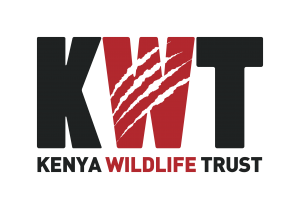COVID Kindness

As the world continues to grapple with the COVID-19 Pandemic, its effects are far-reaching with direct impacts on health and associated economic, social, and environmental impacts. While reported cases of COVID-19 in the key ecosystems where KWT operates are low, its economic and social impacts continue to rise. Communities living in these wildlife areas are grappling loss of household income both from direct tourism job losses and the enterprises that form part of the tourism value chain.
Livestock markets have been closed, preventing pastoralists from trading their livestock and getting much-needed cash to buy essential household food and supplies, all against rising living costs. School closures mean that children are missing out on important learning time as most households in these communities do not have the resources and capacity for online learning. With limited healthcare services, focus in these areas is primarily on preventative measures including social distancing and hygiene.
Kenya Wildlife Trust firmly believes that for predators and other wildlife to thrive, the communities who co-exist with them need improved access to healthcare and education services, and enhanced livelihood opportunities in order to realize and enjoy direct and tangible benefits from this wildlife.
In Amboseli, we have partnered with The Original Ker & Downey Safaris and Kitirua Conservancy to provide reusable face masks and soap to community members in villages around the conservancy. So far, we have distributed 500 masks and 50kgs of soap to families in Embaragoi and Esiteti villages, with a further 800 masks being provided in the coming weeks


In the Mara, with funding from World Wide Fund for Nature Kenya (WWF-Kenya), our Mara Predator Conservation Programme community team will distribute 170 handwashing stations and COVID-19 awareness posters in the Maa language to ranger outposts, health centers and markets across the Mara Ecosystem.
The Lion Recovery Fund has recently supported the recruitment of ten community lion ambassadors who will respond to conflict incidences, warn communities of the approach of lions to settlements and grazing areas, and raise awareness about husbandry techniques needed to minimize conflict. The ambassadors will also talk to communities about COVID-19 prevention and work with the MPCP team to distribute handwashing stations.
Current efforts to spread COVID kindness to communities have not placed enough emphasis on children also being affected by this pandemic. The Mara Predator Conservation Programme will engage members of its wildlife clubs through interesting avenues to help them cope with the current physical distancing rules and school closures. Factoring in their level of comprehension, MPCP will publish and distribute topical monthly wildlife club articles with artwork and essay contributions from members. Inclusion of child-friendly COVID-19 awareness posters will aid in promoting the Sustainable Development Goals of good health and well-being.


In the coming months, the Kenya Wildlife Trust will work with one of our long term partners, Communities Health Africa Trust (CHAT), to set up a health and education programme around Amboseli’s Kitirua Conservancy. Taking a PHE (Population Health & Environment) approach, Communities Health Africa Trust will through the CORPS mentorship service, integrate health and conservation messaging to seek success for greater conservation and human welfare outcomes. In response to the current COVID-19 crisis, CHAT have scaled up their work to ensure that all the communities they work with have proper information and support to prepare and protect themselves.
Special thanks to Friends of Kenya Wildlife Trust (UK) and The Original Ker & Downey Safaris who have raised $20,000 in a record two weeks to match funding from a generous CHAT donor. Part of this funding will go towards setting up the Kitirua Health Programme.
To be part of these new and exciting initiatives, read how you can




